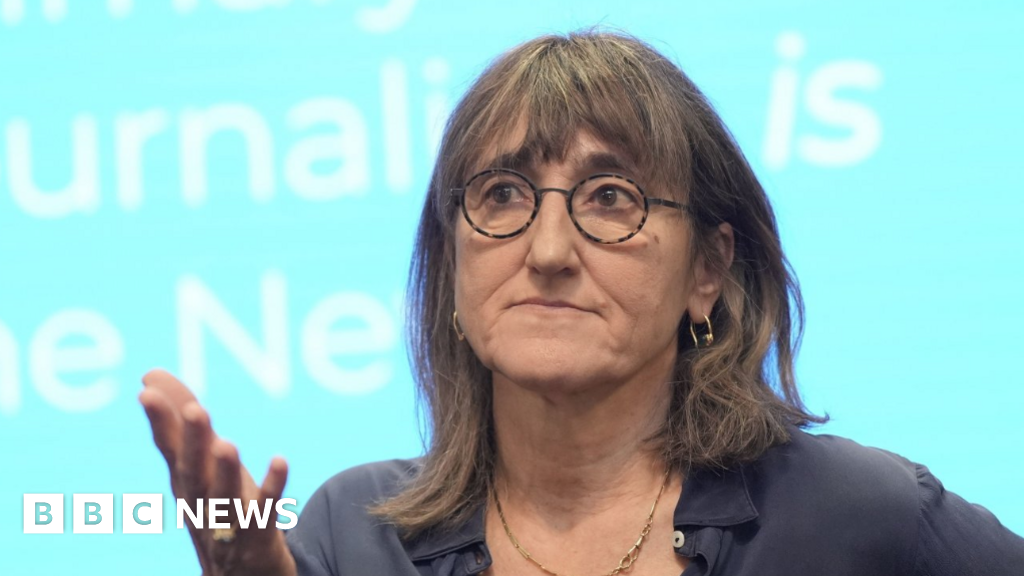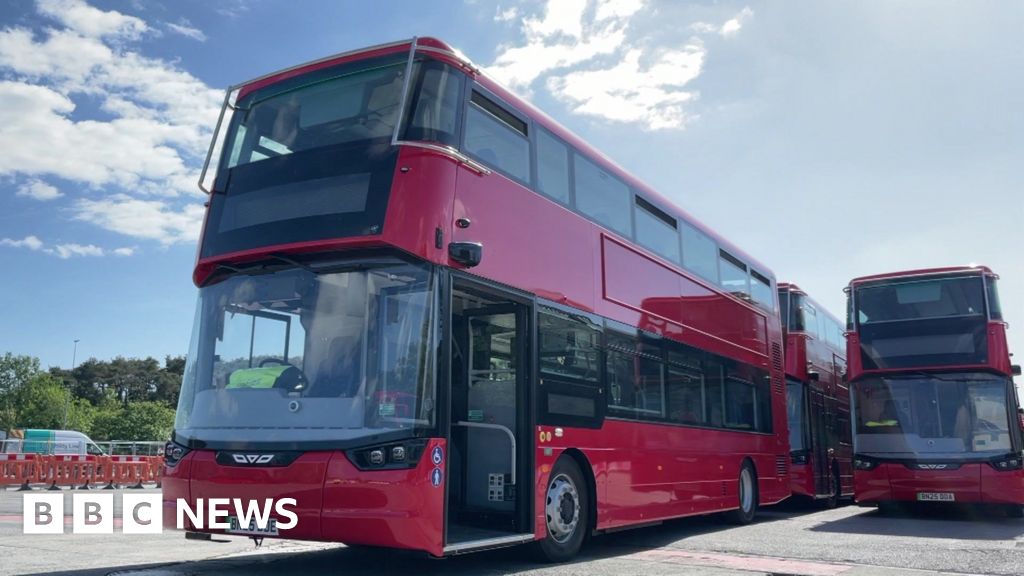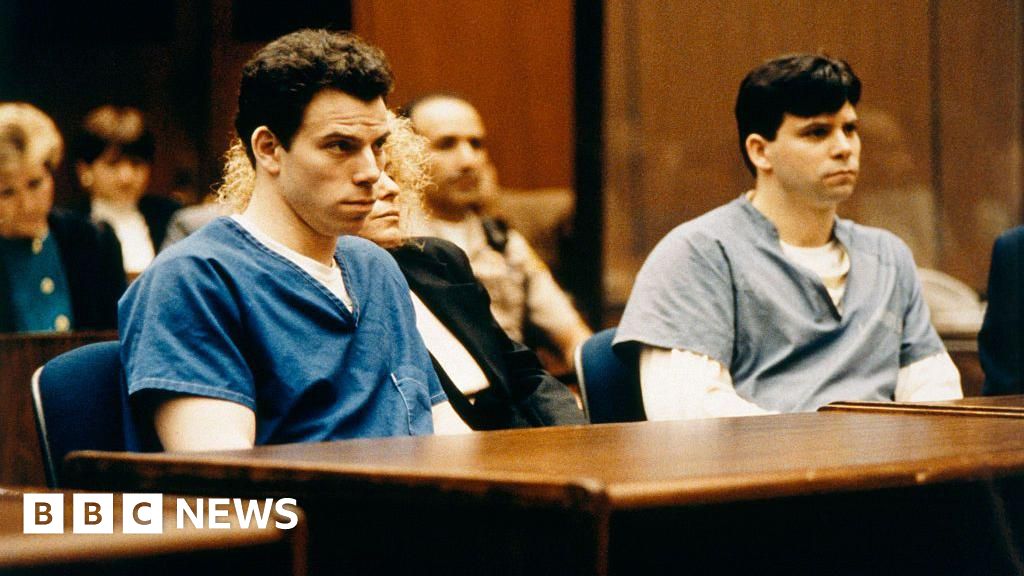- Mobility
Trisha Yearwood’s Easy Baked Beans
时间:2010-12-5 17:23:32 作者:Investigations 来源:Economy 查看: 评论:0内容摘要:But even though President Trump didn't manage to get a rise out of the South African president, that does not mean his efforts over more than an hour were in vain; they certainly were not.But even though President Trump didn't manage to get a rise out of the South African president, that does not mean his efforts over more than an hour were in vain; they certainly were not.
The US confirmed last week that it was preparing a new system for providing aid from a series of hubs inside Gaza, which would be run by private companies and protected by security contractors and Israeli forces.Images analysed by BBC Verify show that land has already been cleared, with new roads and staging areas constructed at a number of locations in southern and central Gaza in recent weeks.

Israel has not publicly said where the hubs will be, but humanitarian sources - briefed previously by Israeli officials - told BBC Verify that at least four centres will be built in the southern section of Gaza and one further north near the Netzarim Corridor, a strip of land controlled by the military that effectively divides the territory.The Gaza Humanitarian Foundation - an organisation set up to support the plan - initially said food, water and hygiene kits would be supplied to 1.2 million people, less than 60% of the population.On Wednesday it announced it would start operations before the end of May, and appeared to call for Israel to allow aid through normal channels until its distribution centres were fully operational. It also called for aid hubs to be built in northern Gaza, something not envisaged under the original plan and which had led to criticism that people would be forced to move south.

UN agencies have insisted they will not co-operate with the plan - which is in line with one previously approved by Israel's government - saying it contradicted fundamental humanitarian principles.A spokesperson for the UN's Office for the Co-ordination of Humanitarian Affairs (OCHA) accused Israel of seeking to use "food and fuel as leverage, as part of a military strategy".

"All aid would be channelled through a handful of militarised hubs," Olga Cherevko told BBC Verify.
"That kind of arrangement would cut off vast areas of Gaza – particularly the most vulnerable, who can't move easily, or are otherwise marginalised – from any help at all.""While this is the first detection of West Nile Virus in mosquitoes in the UK so far, it is not unexpected as the virus is already widespread in Europe," said Dr Meera Chand, a deputy director for travel health and infections at UKHSA.
Dr Arran Folly, who led the project which found the virus, said its detection is part of a "wider changing landscape, where, in the wake of climate change mosquito-borne diseases are expanding to new areas".While the
mosquito is native to Britain, he added that warming temperatures may bring non-native species to the UK and, with them, the potential of infectious disease.Prof James Logan, from the London School of Hygiene & Tropical Medicine, said the development was "serious" but there was no need for the public to be alarmed.
- 最近更新
- 2025-07-07 10:47:2319 easy lunches that can help you have more energy
- 2025-07-07 10:47:23Labubu fan fury after dolls pulled from stores
- 2025-07-07 10:47:23Biodiesel plant 'needs support' to avoid closing
- 2025-07-07 10:47:23Video Duration 00 minutes 44 seconds play-arrow00:44
- 2025-07-07 10:47:23Protestors accuse Trump of corruption as he hosts crypto gala dinner
- 2025-07-07 10:47:2319 joyful things to do in July
- 2025-07-07 10:47:23Cooper Flagg taken by the Dallas Mavericks with the No. 1 pick in 2025 NBA Draft
- 2025-07-07 10:47:23Cooper Flagg taken by the Dallas Mavericks with the No. 1 pick in 2025 NBA Draft
- 热门排行
- 2025-07-07 10:47:23EyeVac Pro Touchless Automatic Dustpan
- 2025-07-07 10:47:23What does the UK-EU deal mean for holidays and jobs? Your questions answered
- 2025-07-07 10:47:23Car insurance myths: Red cars, rate negotiations and other popular misconceptions
- 2025-07-07 10:47:23Video Duration 24 minutes 43 seconds play-arrow24:43
- 2025-07-07 10:47:23Alpha Grillers Digital Meat Thermometer
- 2025-07-07 10:47:23Fri Jun 27, 7:05 PM EDTAPLTVTB44-35BAL34-46
- 2025-07-07 10:47:23The 5-Ingredient Tomato Salad I Make All Summer Long
- 2025-07-07 10:47:23Nvidia boss calls US chip policy a 'failure'
- 友情链接
- Markram and Bavuma put South Africa on verge of WTC win against Australia Iran warns US of consequences after strikes, says Trump betrayed his voters Devi Khadka: The woman leading the fight against wartime sexual violence New Sri Lanka mass grave discovery reopens old wounds for Tamils Sounds familiar: Was this said about Iraq in 2003, or Iran in 2025? India says it will ‘never’ restore Indus Waters Treaty with Pakistan Is Trump planning an ‘Africa visa ban’? Mahmoud Khalil leads pro-Palestine rally in New York Kenya police officer arrested over blogger’s death in custody Kenya police officer arrested over blogger’s death in custody India-Pakistan matches confirmed at ICC Women’s World Cups in 2025 and 2026 Kenya police officer arrested over blogger’s death in custody At least 270 bodies recovered from Air India crash site in Ahmedabad Photos: Kenyan police shoot bystander at close range during latest protests Iran-Israel conflict raises alarm in Pakistan amid fears over own security African manhood is broken – and it’s costing women their lives .css-v2kfba{height:100%;width:100%;} Iran-Israel conflict raises alarm in Pakistan amid fears over own security Lone survivor of Air India crash mourns brother Are commercial interests driving Uganda’s military operations in DR Congo? Markram and Bavuma put South Africa on verge of WTC win against Australia New Sri Lanka mass grave discovery reopens old wounds for Tamils India-Pakistan matches confirmed at ICC Women’s World Cups in 2025 and 2026 Senior Trump officials say US attacks on Iran ‘not about regime change’ “Will Israel accept” Iran if it’s not a nuclear threat? African manhood is broken – and it’s costing women their lives Markram and Bavuma put South Africa on verge of WTC win against Australia The Netherlands returns 119 stolen sculptures to Nigeria Why India refused to join SCO condemnation of Israel’s attacks on Iran IAEA says extent of damage at Fordow still unknown
